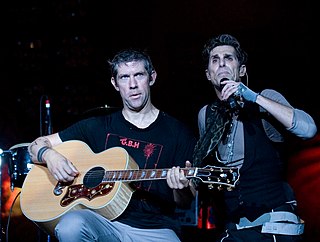A Quote by Paul Allen
I first got interested in the brain through computers.
Related Quotes
I think computers have changed things tremendously. At one time, you tended to take the rough with the smooth. But now, because you can go back and stop and start, and have a limitless amount of tracks if anything looks remotely good, we keep it. You've got to go through the agony of sounding very human at first, and then you work on it with the aid of technology. Computers have revolutionized things in many ways allowing me to work to a standard I could have only joked about fourty years ago.
In our age of individualism, we see computers as ways through which we can express our individuality. But the truth is that the computers are really good at spotting the very opposite. The computers can see how similar we are, and they then have the ability to agglomerate us together into groups that have the same behaviours.
I went out to cover the wars in Iraq and Afghanistan fundamentally [in Buzzing at the Sill] because I was interested in war as a notion and in experiencing it. I was interested in history and how societies form. I was interested in the recent history of what had provoked these wars. So when I finally got out there, I was really seeing the wars through the American perspective, much more than through being embedded with American soldiers and Marines.
The first thing I became interested in in terms of 'Brain Storm' was neuroscience, and that is like saying you're interested in the universe. So ultimately I knew if I was going to handle this in a fictional format, I would have to take a subsection of neuroscience, and that turned out to be the use of neuroscience in criminal courts.



































